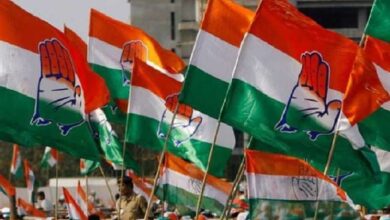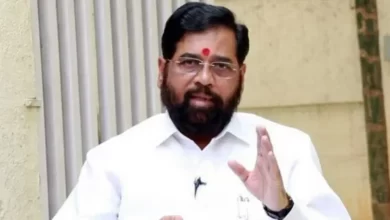Pakistan’s economic diplomacy

Pakistan’s new security policy talks about increasing cooperation at the regional level.
brahmdeep alune
Pakistan’s new security policy talks about increasing cooperation at the regional level. But his path is not easy. Due to bad relations with India, the goods of everyday necessities have become very expensive and it is directly affecting the people. Trade between the two countries has been closed since 2019.
The guided democracy of Pakistan, which has entered the eighties, is now forced to understand the utility and consequences of India’s egalitarian democracy. For the first time in Pakistan’s new security policy, it has been said to give priority to geo-economic policy over geo-political and strategic policy. Pakistan’s Prime Minister Imran Khan is currently facing a tough challenge to save the country from bankruptcy.
Their concern is clearly visible in the recently announced new security policy. This new security policy states that as strong as Pakistan is militarily, but if the economy is not strong then it will not be able to defend its independence and sovereignty. In the new security policy, the emphasis is on strengthening the country’s economy and from now on, the foreign policy will also focus on furthering economic diplomacy.
In fact, through the new security policy, Pakistan has tried to send a message to the people of the country and the global community that it is ready to emerge as a nation where there is a better environment for trade and business and the administration is also accordingly. . It is worth noting that Pakistan is currently in deep economic crisis, its debt is increasing continuously, relations with neighboring countries are strained, it is facing global economic sanctions and Imran Khan in the general elections to be held in 2023. There is also the challenge of retaining power.
Pakistan, which came into existence after splitting from India, has faced constant political instability. The people of this country, cursed by dictators, continued to fall under the guise of the policy of strategic insecurity of their military rulers. This is the reason why Pakistan is facing the crisis of its existence by becoming a decaying and pauper nation. After independence, India’s policy was based on peace and inclusive development, while Pakistan became a member of the Winter Military Groups in the 1950s to promote the strategic interests of global powers.
Then this immediate method of Pakistan’s opposition to India was very much liked by the people there and it gave a boost to the coup policies of the military rulers. In all this development, modern education, security of women and minorities have been neglected, the consequences of which are now coming to the fore. Foreign debt on Pakistan has reached an all-time high. Shabbar Zaidi, former chairman of the Pakistan Federal Board of Revenue (FBR), has already said that Pakistan is insolvent. The domestic and foreign debt on the country has exceeded fifty thousand billion rupees.
The crisis does not end here. The bigger crisis than the financial condition is the religious and extremist organizations growing on the soil of Pakistan who are openly challenging the rule of law. A major reason for this has been the religious extremist policies of various governments. Madrasas were diverted from modern education to more religious education, which is seeing very dangerous consequences. Terrorist attacks across the world have been linked to Pakistan. Global financial institutions have refused financial assistance to Pakistan due to allegations of Pakistan’s government and military aiding terrorists.
Pakistan is currently trapped in the debt trap of China. In a way, China has controlled the most important Gwadar port of Pakistan from the trade and strategic point of view. Pakistan has a forty-year agreement with China on sharing and controlling the investment of money in Gwadar. China will have the right to ninety-nine percent of its revenue and the Gwadar Port Authority will get only nine percent. Thus indirectly Pakistan will not have control over Gwadar for the next forty years.
Pakistan’s new security policy talks about increasing cooperation at the regional level. But his path is not easy. Due to bad relations with India, the goods of everyday necessities have become very expensive and it is directly affecting the people. Trade between the two countries has been closed since 2019. After the Pulwama attack, the Indian government stripped Pakistan of the status of the most preferred country and increased the customs duty on goods imported from there to two hundred percent. In return, Pakistan also imposed restrictions on imports from India.
Pakistan has exacerbated its own crisis by promoting unrest and political instability in Afghanistan. The Taliban government in Afghanistan is supported by extremist groups in Pakistan and has strengthened the radicals. Millions of refugees coming from Afghanistan have become a big problem for Pakistan. The border between Pakistan and Afghanistan is extremely complex and long. Its constant monitoring is a difficult task, so efforts are being made to put up a fence on this border, while the Taliban is increasing the problems of Pakistan by breaking this fence. Pakistan’s relations with Iran, another important neighboring country, are also bad. Iran alleges that Pakistani soil is used by Iranian extremists.
In such a situation, if Pakistan works on economic diplomacy, then it will have to upgrade the route through India to Afghanistan and Iran. Pakistan has been opposing India’s presence in Afghanistan and strong ties with Iran. India had signed a Turkmenistan-Afghanistan-Pakistan-India purchase and sale agreement for natural gas through the TAPI gas pipeline project.
It also had the support of America. But even after a decade, this plan has not been able to reach its end and a major reason for this has been the anti-India policies of Pakistan. The pipeline will start from Daulatabad gas field in Turkmenistan via Herat-Kandahar in Afghanistan to reach Quetta and Multan in Pakistan and the gas pipeline will end at Fazilka on the Indo-Pakistan border. Obviously, it can benefit crores of people of India, Pakistan and Afghanistan. But the extremist organizations of Pakistan have been opposing the aid to India through their country and the government is helpless before them.
Pakistan has talked about policy changes, but the uncertainty and instability of democracy makes it impossible to promote economic progress and social welfare. Along with this, a lot of social, legal and political reforms are still needed in the country in terms of representation, accountability, propriety and equity for inclusive development. In the midst of all these challenges, if Pakistan moves forward on the policy of increasing economic cooperation, then it can be beneficial not only for it but also for India. If Pakistan shows the will to establish good relations with regional countries according to its new security policy, then it will be a good sign for the whole world including South Asia.
,






